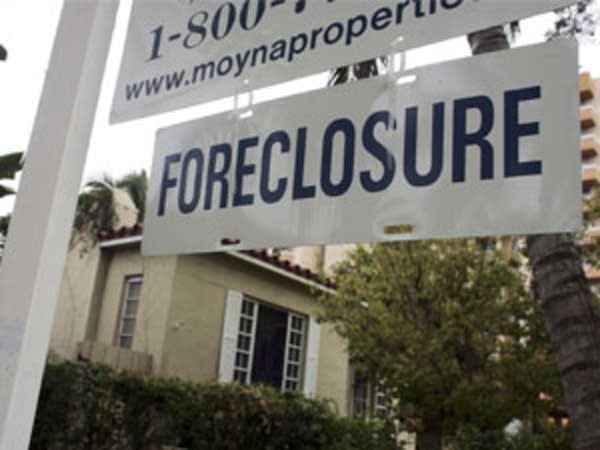Equity-stripping scams could rise as foreclosures increase

When Anita Nunn remembers her home, which she lost more than a year ago in a foreclosure rescue deal, tears spring to her eyes.
"I loved that house. It was just nice. I don't know, it's hard to explain. It was homey, it was home for us." Nunn says. "I've got 15 grandchildren and it was home for us for a long time."
Nunn, 54, lived with her boyfriend, her youngest son and his children in the South Minneapolis home since 1999.

She says things were great until her job at a call center was transferred to India. When her unemployment ran out, she quickly fell behind on her mortgage.
Create a More Connected Minnesota
MPR News is your trusted resource for the news you need. With your support, MPR News brings accessible, courageous journalism and authentic conversation to everyone - free of paywalls and barriers. Your gift makes a difference.
Nunn found another job, but it was too late to prevent the home from going into foreclosure. And that's when the offers of "help" started pouring in.
"I received maybe five letters a day and maybe four to five fliers a week at my door from different people trying to help," says Nunn, who eventually signed an agreement with a company called The Ordway Group, which promised to help her hold onto her house.
You can't help feeling like there is something you should've done--'I should have read the papers better, I should have done this, I should've, I could've, I would've.'
The deal followed a pattern typical of equity stripping.
The company and an outside investor bought Nunn's house, bringing it out of foreclosure. They then rented it back to Nunn. Under the agreement, she could eventually buy the house back.
But her monthly rent payments were several hundred dollars higher than they were when she owned the house, and Nunn was soon unable to keep up.
If she had sold her house instead of taking the deal, she could have walked away with approximately $50,000 in home equity. Instead, she lost that equity, and in 2004, she lost the house. The company evicted her so they could resell it.
Nunn is now suing The Ordway Group, alleging the company misrepresented a deal that offered hope that she would keep her home but instead doomed her to losing it.
"I think they took away her options," says Nunn's attorney Bryan Battina. He says the deal preyed upon her hope that she could stay in the house.
"Just the simple fact that they talked her into this agreement that was basically set up to fail, they in turn took away any other opportunities she had," Battina says. "There was no guarantee that she could have sold the property, but the simple fact is that they took away that opportunity and in doing so they took away all of her equity."
Calls to The Ordway Group were not returned. But Stephen Hance, the company's attorney, said in a written statement that "the transaction was fair," and that all terms were fully disclosed to Nunn in advance, in writing.
Nunn's lawsuit is still working its way through the legal process.
She wasn't thinking about suing until she got a call from the Minnesota attorney general's office. She says agency officials told her they were investigating Ordway and they suggested she get a lawyer to pursue her rights. Calls to the attorney general's office were not returned.
There are no nationwide numbers available showing how widespread equity stripping is, but several states have passed laws against it, including Minnesota.
Foreclosure prevention advocates say the goal of the Minnesota law is to make these deals virtually impossible to do legally.
The law requires verification that the foreclosed homeowner can afford the monthly payments and will be able to buy the house back.
University of Minnesota law professor and former assistant attorney general Prentiss Cox, who helped write the law, says it is a powerful weapon against equity stripping. But with metro-area foreclosures on pace to hit record levels this year, he says there may be many more homeowners at risk of losing their equity.
"When you have foreclosures go up six times, even if home values are going the other way, there is going to be a certain percentage of those people who have substantial equity," says Cox. "So there is still a market for this and it may be [getting] bigger."
Last week, Hennepin County officials announced a stepped-up campaign to promote foreclosure education and prevention.
Anita Nunn says she's learned a lot from what happened to her. But she says she's still haunted by the deal. "You can't help feeling like there is something you should've done--'I should have read the papers better, I should have done this, I should've, I could've, I would've.' You can't help feeling like that, but the fact of the matter is it's not your fault."
She is now living with her son and working two jobs to get back on her feet. Despite her past troubles, she plans to buy another house as soon as she can.
